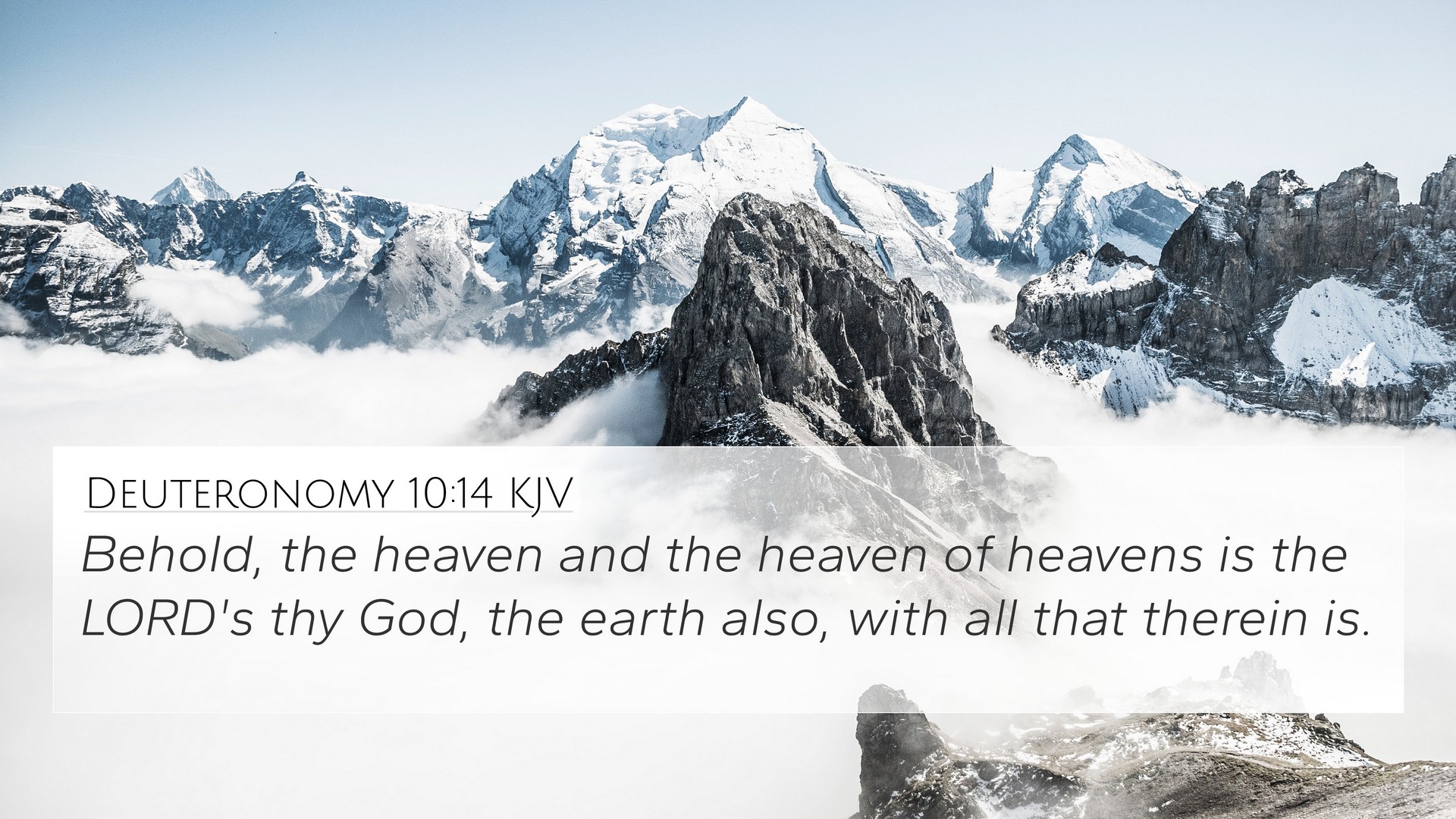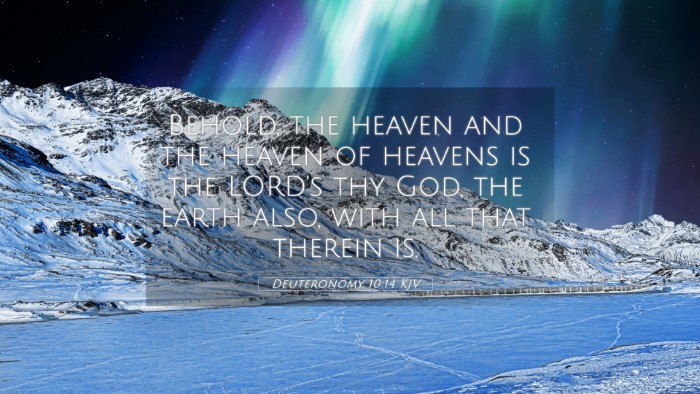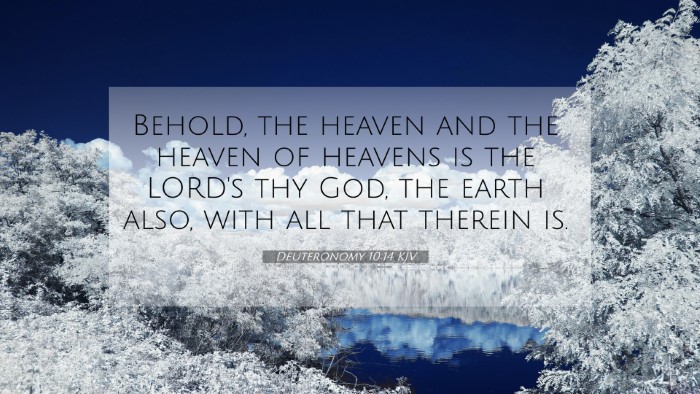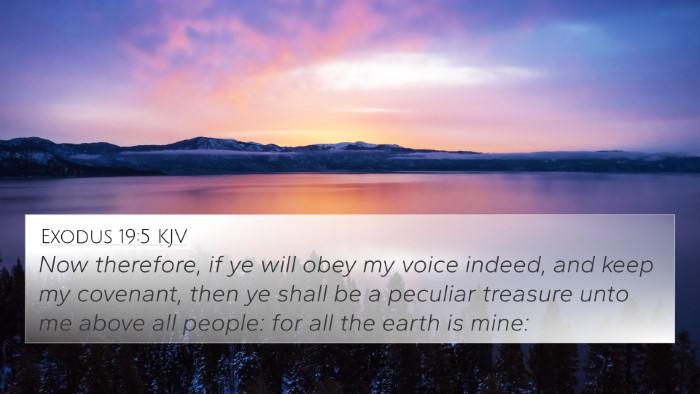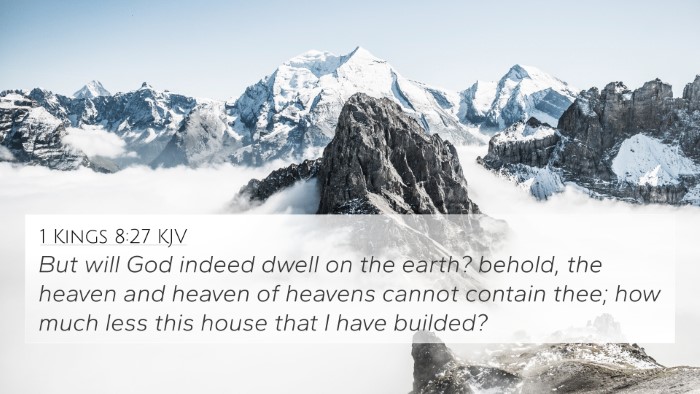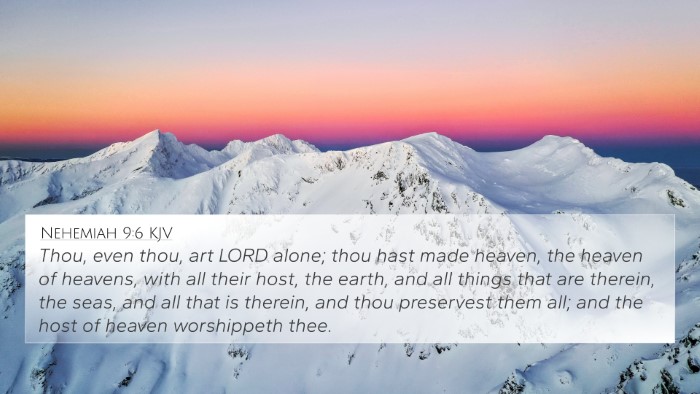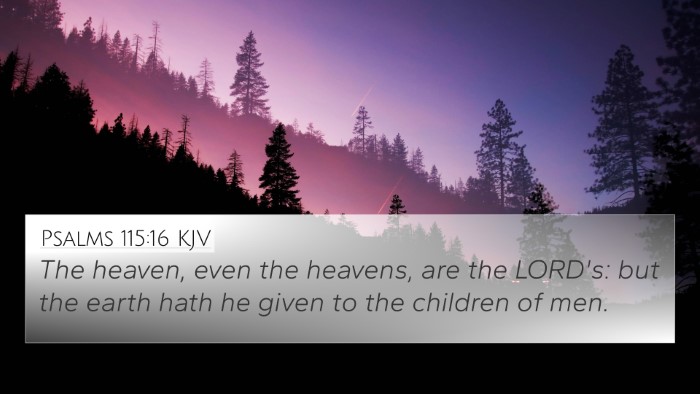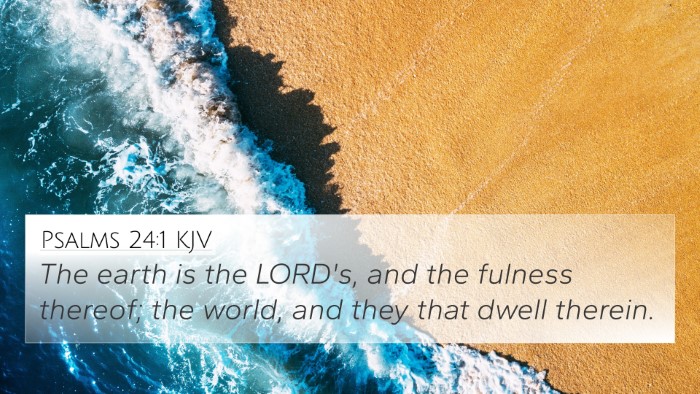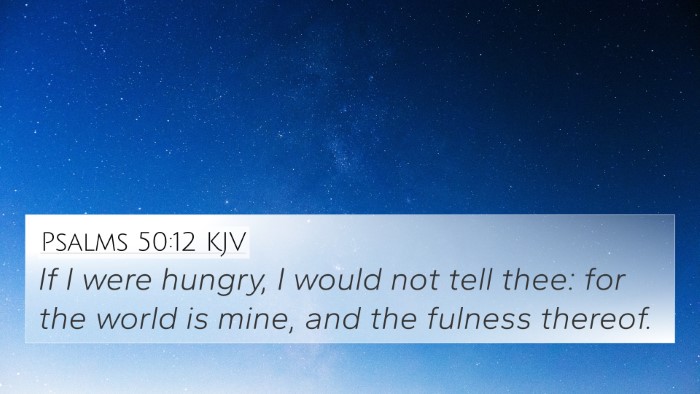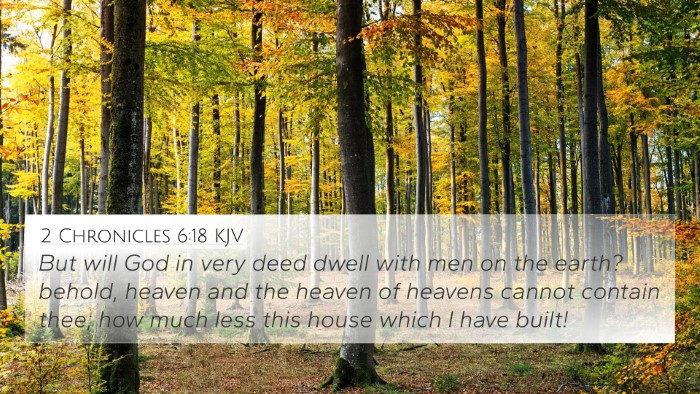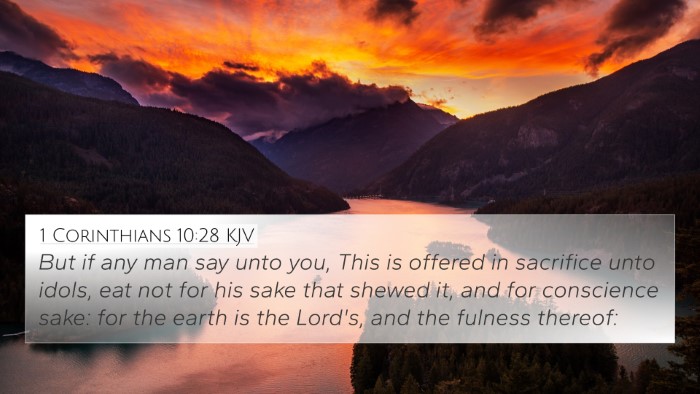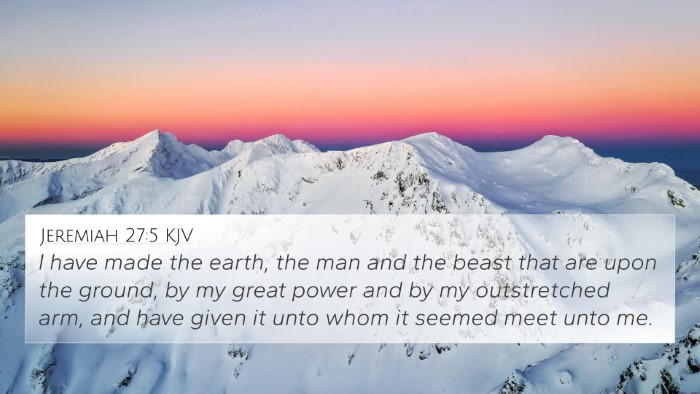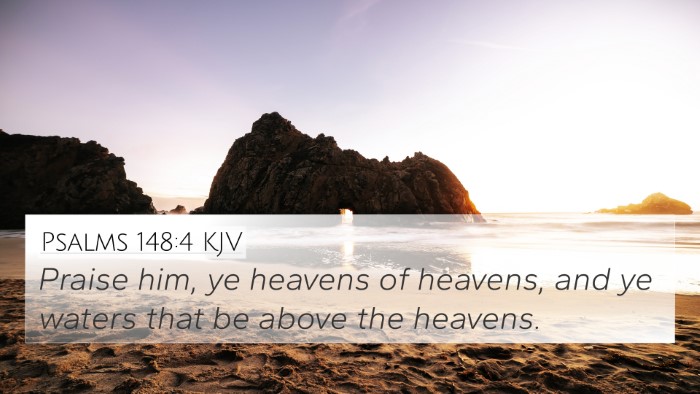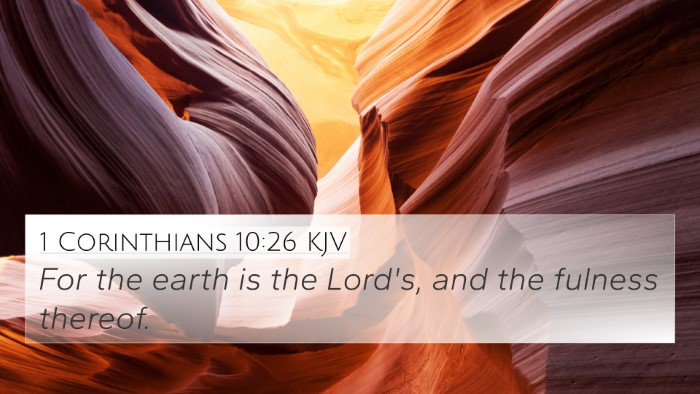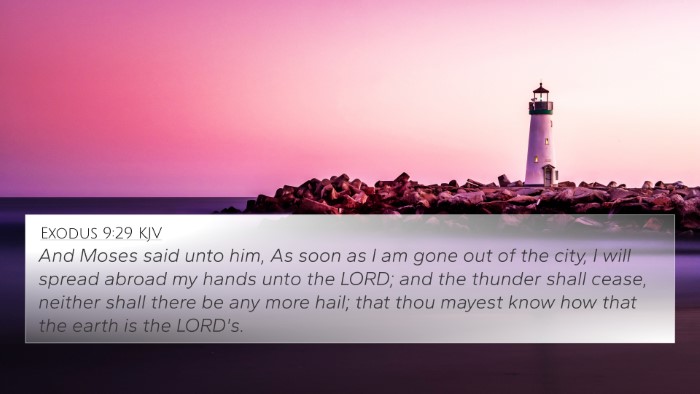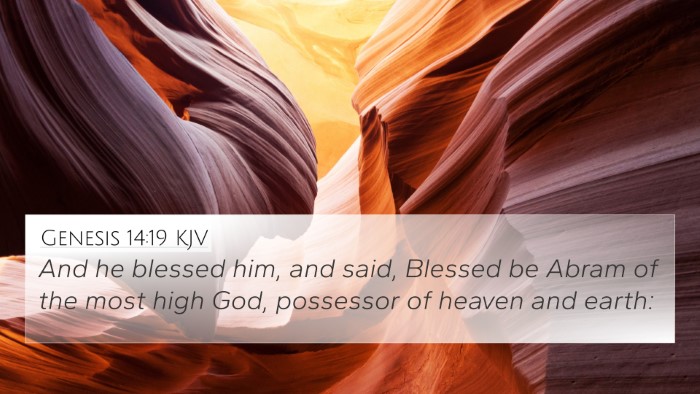Interpretation and Meaning of Deuteronomy 10:14
Deuteronomy 10:14 states: "Behold, the heaven and the heaven of heavens is the LORD's thy God, the earth also, with all that therein is." This verse starkly emphasizes the sovereignty of God over all creation and serves as a pivotal reflection on His majesty and power.
Overview of the Verse
In this passage, we are reminded of the grandeur of God’s creation—encompassing the heavens above and the earth below. It urges us to recognize the omnipotence of God who holds dominion over all that exists.
Insights from Public Domain Commentaries
Drawing from public domain commentaries:
- Matthew Henry's Commentary: Henry remarks that this verse illustrates God's supremacy and the vastness of His creation. Every part of the universe is subject to His authority, and acknowledging this is essential to our understanding of His relationship with humanity.
- Albert Barnes' Notes: Barnes notes that the earth and the heavens are distinct but interconnected, all showcasing the glory of the Creator. This expression serves as a reminder of our humble place in God’s grand design.
- Adam Clarke's Commentary: Clarke stresses the importance of recognizing God's lordship over everything. He argues that this acknowledgment is critical for sincere worship and service, recognizing that everything we have ultimately belongs to God.
Thematic Connections to Other Scriptures
This verse establishes a profound connection with several other scriptures, illustrating the thematic unity of the Bible concerning God’s sovereignty:
- 1 Kings 8:27: "But will God indeed dwell on the earth? behold, the heaven and heaven of heavens cannot contain thee; how much less this house that I have builded?" - This verse reinforces the transcendence of God beyond even the highest heavens.
- Psalm 115:16: "The heaven, even the heavens, are the LORD's: but the earth hath he given to the children of men." - It highlights the distinction between God's eternal sovereignty and the dominion He has delegated to humanity.
- Isaiah 66:1: "Thus saith the LORD, The heaven is my throne, and the earth is my footstool: where is the house that ye build unto me?" - This challenges our human conceptions of God’s dwelling place by illustrating His boundless nature.
- Acts 17:24: "God that made the world and all things therein, seeing that he is Lord of heaven and earth, dwelleth not in temples made with hands;" - This verse invokes a God who is sovereign over all and cannot be confined to physical spaces.
- Revelation 4:11: "Thou art worthy, O Lord, to receive glory and honour and power: for thou hast created all things, and for thy pleasure they are and were created." - This passage concludes with a doxology celebrating God’s creative authority which aligns with Deuteronomy 10:14's affirmations.
- Colossians 1:16: "For by him were all things created, that are in heaven, and that are in earth, visible and invisible..." - This connects the New Testament understanding of Jesus’ role in creation to the Old Testament foundation of God’s sovereignty.
- Genesis 1:1: "In the beginning God created the heaven and the earth." - This foundational verse sets the stage for understanding the importance of God's creation as displayed in Deuteronomy 10:14.
Understanding the Verse through Cross-Referencing
Cross-referencing other Bible verses can deepen our understanding of Deuteronomy 10:14. Utilizing tools for Bible cross-referencing, such as concordances and study guides, can help identify these connections:
- Tools for Bible Cross-Referencing: Many believers use Bible concordances to explore related scriptures that provide a richer understanding of biblical themes.
- Bible Reference Resources: By using resources such as cross-reference guides, it's easier to navigate the interconnected scriptural narratives.
- How to Use Bible Cross-References: Engaging with the biblical text through these tools allows for practical applications in personal study or sermon preparation, emphasizing themes like God’s sovereignty.
Conclusion
Deuteronomy 10:14 stands as a profound reminder of God's sovereignty over all creation. By exploring this verse in the context of other related scriptures, such as those cited above, believers can deepen their understanding and form meaningful connections. The theological implications of recognizing God's greatness challenge us toward a life of worship and honor, underscoring our responsibility in His created order.
Final Thoughts
In seeking to grasp the full meaning of Deuteronomy 10:14, we invite others to explore the wonder of God through descriptive links within the Bible. The interconnectedness of scripture not only enhances understanding but fosters a deeper relationship with the Creator.
